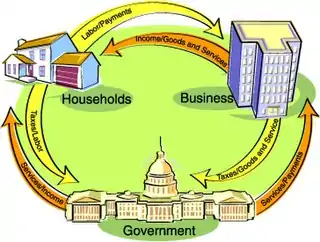Open mouth operations
Open mouth operations are communications by a central bank that affect Central Bank interest rates.[1] They are a tool of monetary policy. The term was coined by economists Graeme Guthrie and Julian Wright in the year 2000.[2] While looking at the operations and communications of the Reserve Bank of New Zealand, these economists found that communications by the central bank had a much more significant effect on the interest rate than did Central Bank operations. Unbeknownst to most economists,[1] Open Mouth Operations let central banks change interest rates without significantly changing their daily monetary operations. Mario Draghi's 2012 statement[3][4] that “the ECB will do whatever it takes to preserve the euro, and believe me, it will be enough”, is an example of a successful Open Mouth Operation used to lower the interest rates of Spanish government bonds: following the announcement, Spanish government bond interest rates dropped 352 basis points without the ECB having to purchase them.[1]
| Finance |
|---|
 |
| Part of a series on |
| Macroeconomics |
|---|
 |
|
References
- Ramanan, Vijayaraghavan; Rossi, Sergio; Rochon, Louis-Philippe (2015). The Encyclopedia of Central Banking. Edward Elgar Publishing. pp. 385–386. ISBN 9781782547433. Retrieved 3 October 2019.
- Guthrie, Graeme; Wright, Julian (October 2000). "Open Mouth Operations". Journal of Monetary Economics. Social Science Research Network. 46 (2): 489–516. doi:10.1016/S0304-3932(00)00035-0. SSRN 251905.
- Draghi, Mario (26 July 2012). "Verbatim of the remarks made by Mario Draghi". European Central Bank. European Central Bank. Retrieved 3 October 2019.
- Milliken, David; Zaharia, Marius (26 July 2012). "Draghi sends strong signal that ECB will act". Reuters. Reuters. Retrieved 3 October 2019.